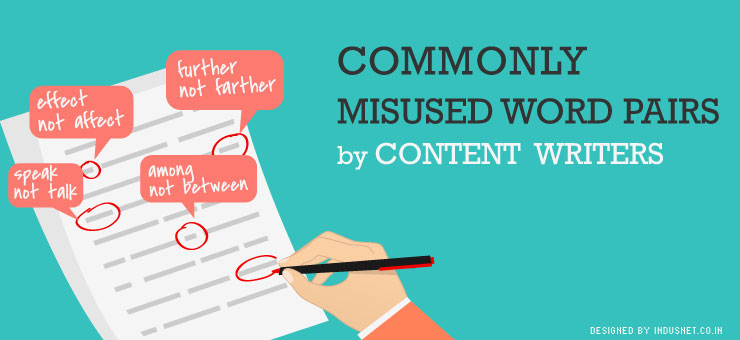
Why You Must Stop Writing Pretentiously
It is a well-accepted theory that if you need a dictionary to understand what a writer is trying to communicate, he or she is a bad writer. There is a tendency among writers to use complex and convoluted words in order to come across as educated, advanced or even sophisticated. This sort of bloated and pretentious writing neither works well in literature nor in content marketing. Oscar Wilde, James Joyce and others often spoke derisively about other writers who wrote in an indulgent manner. They believed, writers who write pretentiously do a disservice to the art and craft of writing. They believed that it was unimportant how complex a particular word is. What is important is, if it is well-understood by the intended target audience. They wrote literature and were not aware of either the Internet or content marketing as we know it today. Those were the times when writing was still an elitist skill that had a sense of awe built around it. Pretentious writing and content marketing Today, we are discussing pretentious writing in the context of content marketing. Content marketing only works when your target audience understands what you are trying to say. Use one wrong word or one difficult word, your audience will get irritated and will move away. If you use a word like “ameliorate” instead of “improve” in your tweet, a lot of people will simply get annoyed. It is not a matter of your target audience’s intelligence but it is a matter of cognitive processing. No one really has the time to process the word “ameliorate” even though most of us know it means the same as “improve”. On the other hand, “ameliorate” sounds pretentious as well. As this particular word is not used as often as “improve”, a number of writers fall into the elitist trap that it should be somehow better to use it because not many people use it. This sort of elitism is only going to harm your content marketing strategies. If you know a content writer that consistently uses bloated, indulgent and pretentious words or phrases, a request to use simpler & more democratic words might be in order. Pretentious writing is about social class and economics All of pretentious writing is really about social class and economics. Some writers often want to align themselves with obvious signs of elitism, which in the case of writing, happens to be complex words. These words are, usually, derived from Latin or one of the other classical languages. Sometimes, writers also have a tendency to use French or German words to sound educated and cultured. Some of the obvious choices are “rendezvous” in place of a meeting, “gateau” in place of “plain old cake” and many others. This tendency goes back to the days of Middle Ages, when it was considered mandatory for every cultured English citizen to know Latin or French. Latin was previously the language of the educated and was replaced by French during the reformation age. French was later replaced by English after the Treaty of Paris, when France ceded its colonial territories in India to England. Yet, the fascination for using foreign language words is quite obvious. The writer takes a superior approach and uses words that a large percentage of his readers would find artificial. Pretentious writing irritates and alienates people While writing pretentiously or indulgently might boost a writer’s morale, it alienates the reader. The reader often feels he or she probably does not understand what is being written and will simply move on to a less complex writer. Or, if the reader is educated and cultured in a less benign sense, he or she will immediately recognize the writing as pretentious & thus, not credible enough. In content marketing, we are trying to build credibility. We are trying to reach out to a target audience. If we are pretentious and self-indulgent, the purpose of content marketing is defeated. People will neither be impressed by content nor will they proceed to follow you on social media and finally, your sales & profits will not improve. If you write pretentiously, you risk alienating ad irritating your target audience, which is the worst thing that any writer can do. Writing is about communication and presenting ideas in a manner that is coherent, cohesive & within content. If these three criteria are not met, it is not good writing. If you write pretentiously, you will come under negative scrutiny Most writers who write pretentiously do not realize that they are asking for negative criticism and unwanted scrutiny. It attracts scrutiny and distracts people from the actual message, no matter how useful & important it is. If we have to write about SEO and begin a sentence like “For the purpose of elevating the current status of search engine results, one could engage in professional entities that assist in these matters”, the message is lost. You could just say “To enhance your SEO, you could hire a professional agency”. This might sound simple but only experienced writers can understand the difference between using simple words to communicate and avoiding complex words when they are not required. Novice writers often use a lot of jargon, complex words and even lengthy sentences to look professional, intellectual and elite. Unfortunately, this attracts negative attention and scrutiny & dilutes the initial message. This is one of the reasons why we need not ever engage in pretentious writing, no matter how tempting it is. Writing pretentiously affects your content marketing strategy Nothing is worse than a piece of pretentious copy to ruin your entire content marketing strategy. If you do not understand what your content writer writes, do not use that piece of content. If you yourself do not understand, why would your audience? Unless you have reasons to believe that the writer has used complex sentences and foreign words to make a valid point, you could ask for a re-edit. If your writer is a novice, he or she will use this
